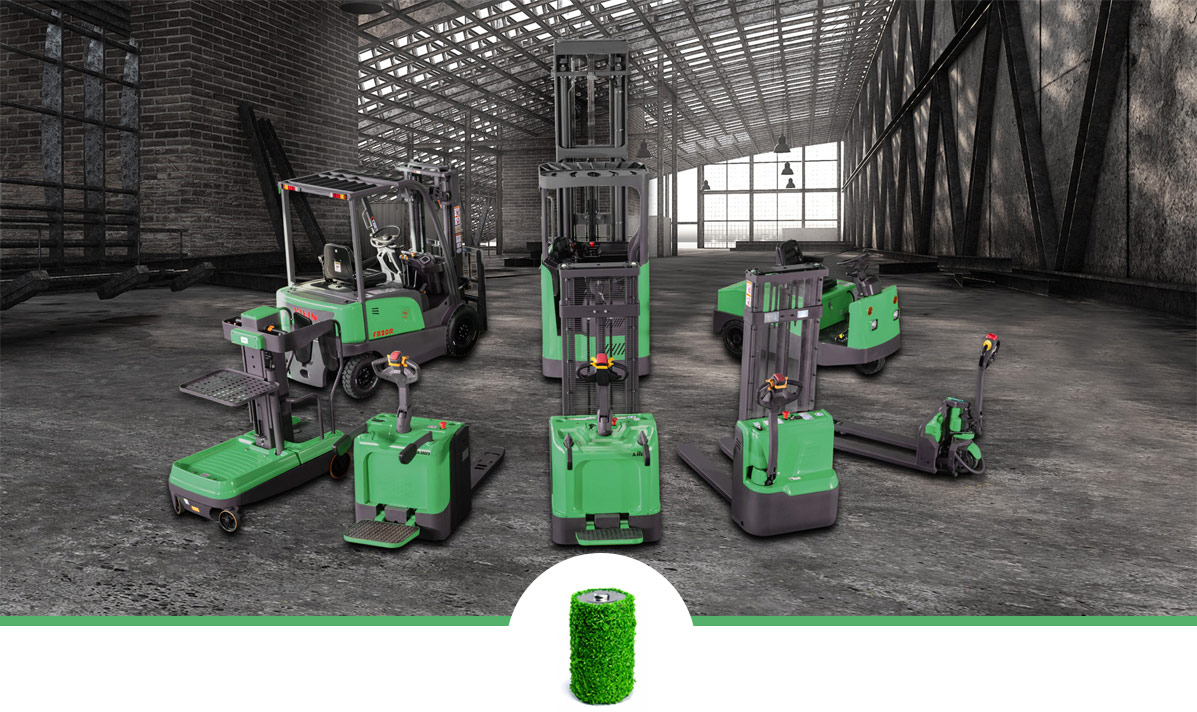
Lithium battery is more and more widely used in industrial vehicles. How to charge and discharge lithium battery? Let's explain it in detail
Requirements on Charging the Li-ion batteries
(1)The charging temperature range is 0-50℃. Li-ion batteries are not allowed to charge in the environment below 0℃ except those with heating system. Low-temperature charging will cause lithium evolution and affect the service life of Li-ion batteries.
(2)The charging place should keep clean and well ventilated, and always keep away from inflammable and explosive articles. Fireworks are strictly prohibited in the charging area.
(3)Operators are suggested to help themselves to charge only with the certain charging equipment coming with the truck from the manufacture to maximize the safety performance of Li-ion batteries. Make sure to connect the positive and negative poles correctly and never do reverse charging.
(4)After the battery is fully charged, unplug the charging line in time to avoid other safety problems.
(5)Abnormal termination of charging may occur during the charging process of lithium batteries. For example, if the charging voltage is too high or the charging current is too large. The phenomenon is defined as "Abnormal Termination of Charging". When it occurs, it may indicate the leakage of lithium batteries or failure of some parts. It is necessary to notify relevant technicians for a complete inspection, finding out the causes and solving them before resuming the charge.
Requirements on discharging the Li-ion batteries
(1)Discharge temperature range is -20-60℃.
(2)When a lithium battery fault is found in display during the start-up or operation of a truck, the cause of the fault should be inquired according to the display code and the schedule of the truck instruction, and the technical personnel should be notified to deal with it in time.
(3)It is necessary to ensure that lithium batteries are not less than 50% charged before maintenance or repair.
(4)To prevent damages of lithium batteries caused by over discharge, it is necessary to charge lithium batteries in time when the instrument displays low charge alarm.
Requirement on transportation and unloading
(1)Firm out packages are highly required when Li-ion batteries are about to transport.
(2)Sign of water proof, sing of humidity, sign of upward, sign of careful and light handling shall be attached to the out packages. In case of being damaged, the battery cases must be placed upward according to the sign.
(3)When the lithium batteries are dislocated or extruded during transportation, the exposed wiring harness and connectors should be checked to see if the lithium batteries are damaged or deformed. In case of smoke, sparking, stay away from the scene immediately, and professional technicians should be notified.
Requirements on the storage
(1)The storage of lithium batteries should be in clean and ventilated rooms with ambient temperature ranging from - 10 ~35 ℃ (recommended storage temperature ranging from 0 ~25℃). Long-term storage batteries (more than 3 months) should be placed in an environment with temperature of 25 ±3 ℃) and relative humidity of 65 (±20%).
(2)The contact between lithium battery and corrosive chemicals or gases shall be avoided, so as to prevent the corrosion of lithium battery or its connecting parts, affecting the appearance and service life of the battery.
(3)Keep Lithium batteries away from fire and heat, meanwhile, keep the batteries dry.
(4)Insulation, waterproof and dustproof are required over the storage. Make sure that the protective cover plate above the lithium battery case is fixed tightly without defects and damages. The battery case should be covered with insulation materials and sealed if there is no sealing cover plate.
(5)When lithium batteries are to be stored, the charge should be above 30%. In order to prevent over discharge during long-term storage (more than 3 months), batteries should be charged regularly, keeping the charge at 50%-80%.
(6)It is required to conduct a charge check once a month for those long-term parking trucks. After check, make sure the charge is between 50% and 80%. Charge it till the required amount if the charge is insufficient.
(7)Long-term idle lithium batteries need periodic charge-discharge activation and a standard charge-discharge cycle once a month.











